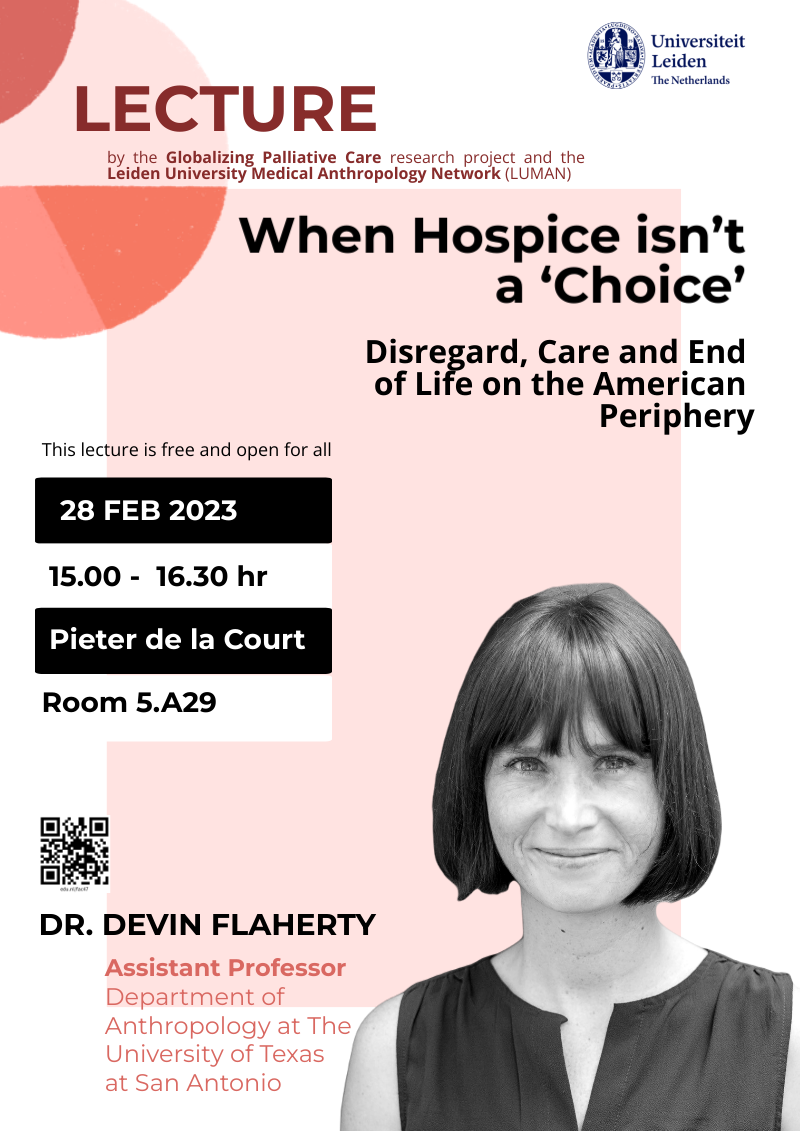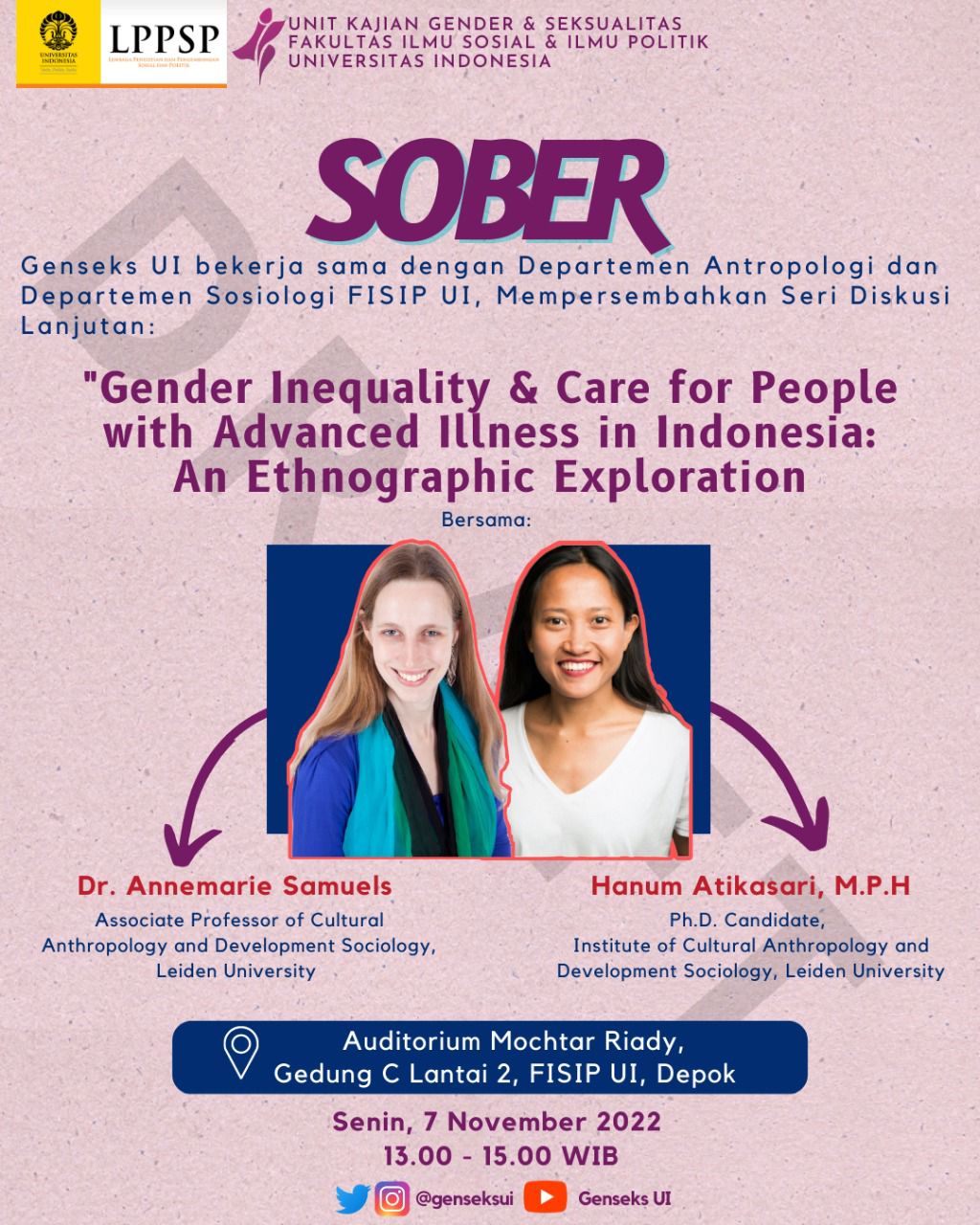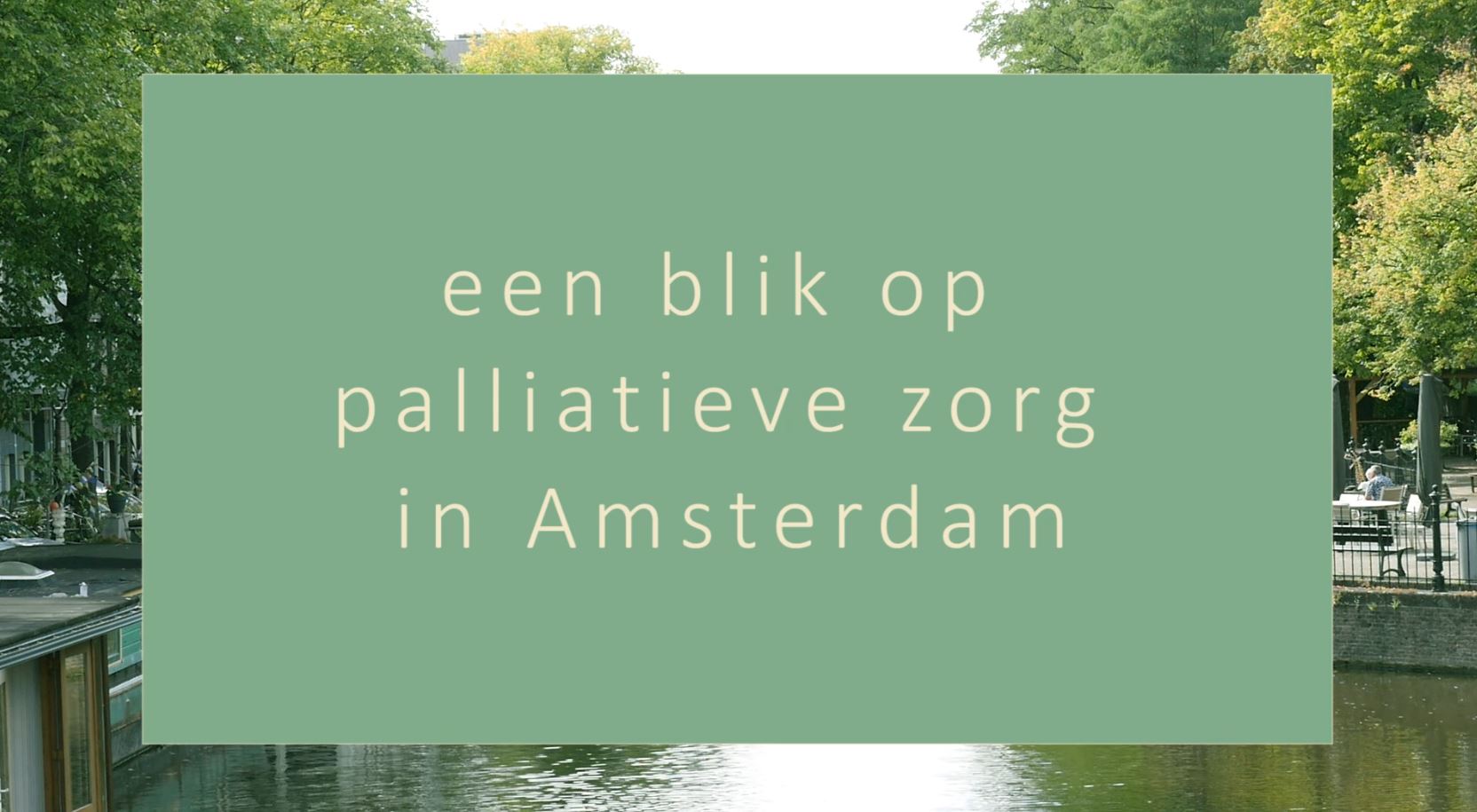
Lecture: When Hospice isn’t a ‘Choice’
In the talk “When Hospice Isn’t a ‘Choice’: Disregard, Care and End of Life on the American Periphery” Dr. Devin Flaherty discusses the peculiar role of hospice care on the island of St. Croix, U.S. Virgin Islands—and its tragic, deleterious consequences for older adults nearing the end of life there. This talk takes place on Tuesday 28th of February 2023 and is organized by the Globalizing Palliative Care research project and the Leiden University Medical Anthropology Network (LUMAN) and hosted at the Institute of Cultural Anthropology and Development Sociology.





